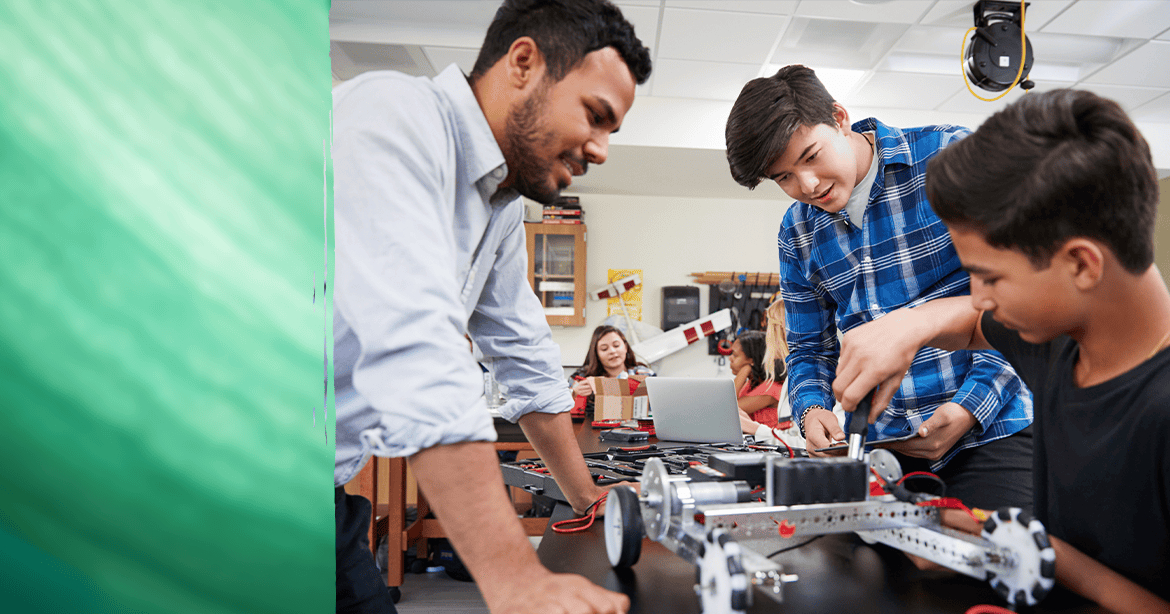How Does MUSE Global School Prepare Students for Careers?

An Interview with MUSE Global college counselor Kristen Wasson
School isn’t all about academics. It’s also about preparing students for life outside of an educational setting. At MUSE Global, we recognize the importance of giving our students the best of both worlds: They get a world-class education while they prepare for their careers. It’s one reason why we’re one of the best private high schools in the Los Angeles area.
Recently on the blog, we looked at how MUSE prepares our students for college with our You Prep program, but how do we ensure that our students are ready for the workforce? We sat down with Kristen Wasson, a MUSE Global School college counselor, for a deep dive on how we prepare our students for future careers.
*****
What skills do you believe are essential for students to succeed in the workforce of the future?
Kristen Wasson: Some essential skills are; working independently or as part of a team, emotional resilience, asking for help when needed, and communicating well with others.
How does MUSE Global School incorporate these skills into its curriculum?
KW: MUSE helps develop these skills through work our students do in the garden, kitchen, and other areas across campus. The Process Communication Model (PCM) helps young people learn how to talk to others who communicate differently. Self-efficacy and persistence are encouraged and taught as attitudes for success.
How does encouraging students to explore their passions and interests prepare them for the workforce?
KW: Passion projects require that students are accountable to a schedule; it is up to them to make this schedule work since they’re mostly working independently. They are also encouraged to brainstorm about research and interviews through most of the project, which helps them learn truly creative thinking, rather than just the rote filling in the blanks on worksheets or tests.
In your opinion, what sets MUSE Global School apart from other schools in preparing students for the future of work?
KW: The hands-on learning in Seed to Table, Human Rights, and other courses is one of the exceptional qualities of a MUSE education, along with our “fail forward” approach. Students are taught not to fear an imperfect outcome. Instead, they learn that no matter the outcome, it’s far better to take a risk with a project than to play it safe.
How do you measure the success of MUSE Global School’s approach to preparing students for the workforce?
KW: Our track record speaks for itself. Our graduates have gone on to attend prestigious universities, grad schools and then successful careers. Many are advocates for the environment and underprivileged populations. MUSE Alumni live around the world and still return to campus when they are in Los Angeles to visit teachers and current students.
Can you describe the role of entrepreneurship and innovation in preparing MUSE Global School students for the future of work?
KW: Many MUSE students have created small businesses for their passion projects. They’ve developed green clothing and organic and gluten-free granola, soap, and body lotions. Students have sold garden and food items (like campus-made pesto), candles, cards, and more at farmers’ markets and our spring and holiday fairs. Students learn through trial and error; they learn to ask for help from experts and gain the confidence necessary to try out ideas and persist through unpredictable outcomes.
How does MUSE Global School support students who may not know what career path they want to pursue?
KW: It’s not unusual for high school students to be unclear about a career path. MUSE gives students myriad opportunities to try out ideas and to meet successful adults who work in various fields and come to campus to share their journeys. The one-on-one college counseling offers students the chance to have an adult listen and explore their interests and potential careers, and to discover the schools that have the best resources, environments, and professors committed to mentoring young people.
Can you discuss the role of creativity and critical thinking in preparing students for the future of work, and how MUSE Global School fosters these skills in its students?
KW: At MUSE, if a student is interested in photography, film-making, painting, writing, acting, or other artistic endeavors, they can get experience with our excellent faculty as well as getting connected to artists around Los Angeles.
As for critical thinking, all of our classes require participation demonstrating thoughtful, intellectual work. And while MUSE rewards out-of-the-box thinking, we also value traditionally effective models of pursuing truth.
How does MUSE Global School support students from diverse backgrounds, or who may face unique challenges in their career preparation?
KW: We’ve had students that come from different backgrounds, educations, or economic situations. At MUSE, we meet every child where they are. It’s our goal to help every single student get a leg up and be their best. We provide extra help if necessary and can help families find appropriate tutoring or other specialists.
Learn more about the benefits of a MUSE Global School education and see what makes MUSE different in preparing students for their careers.

